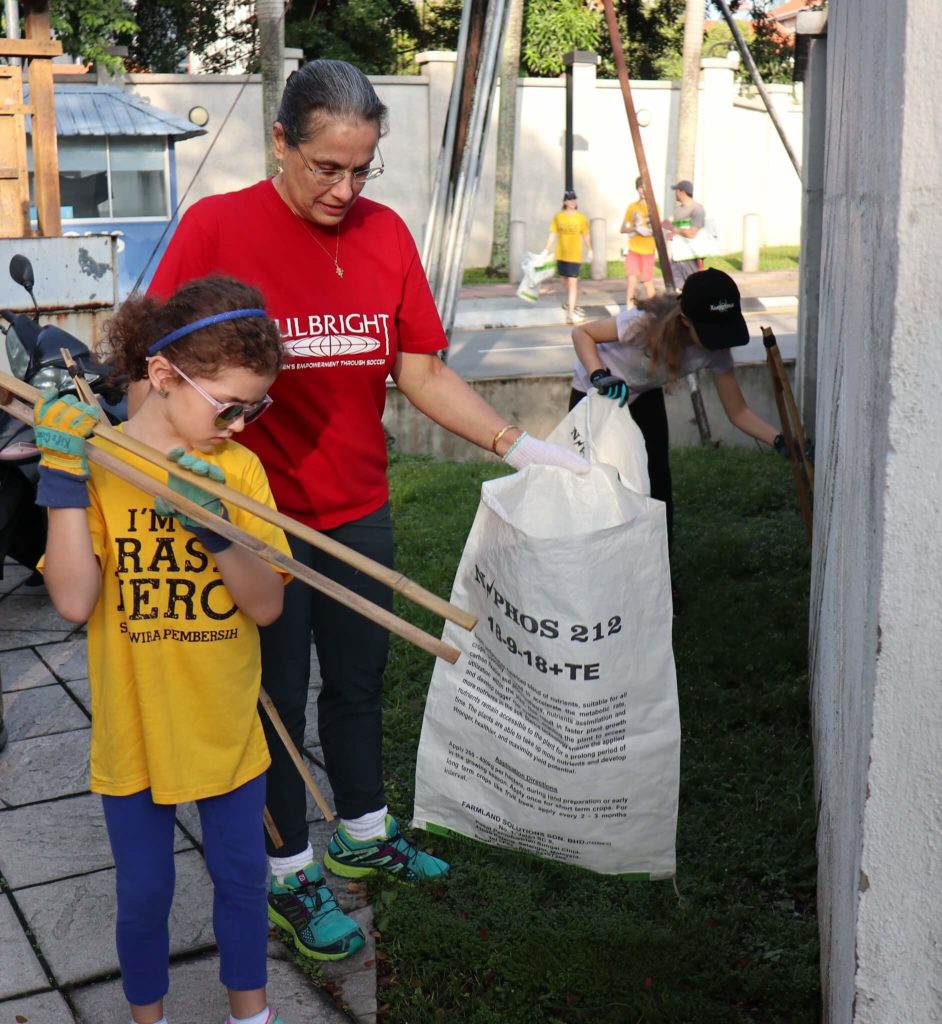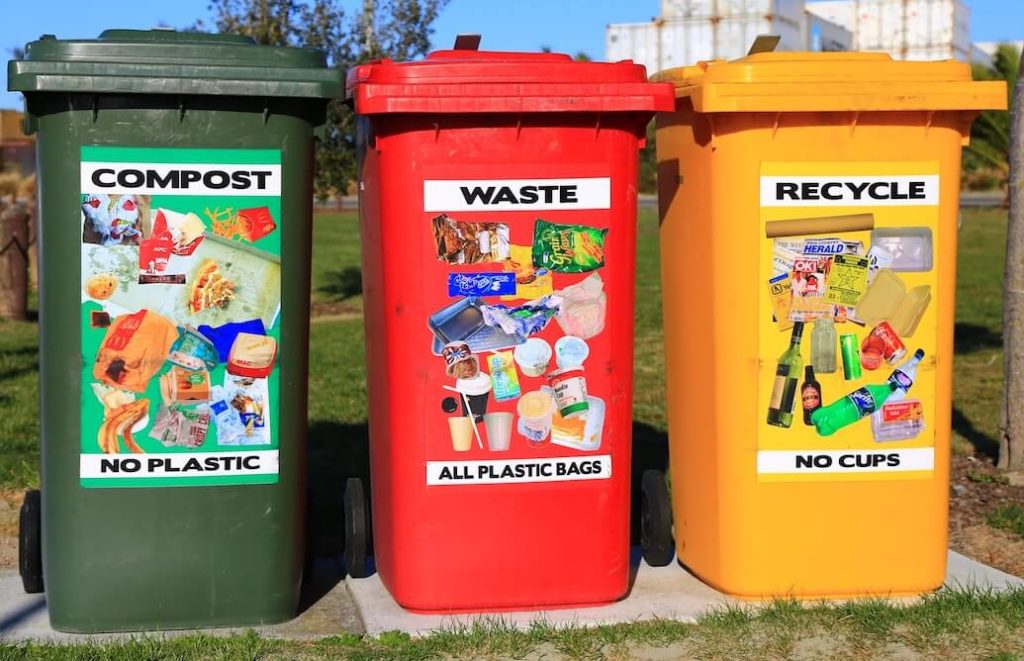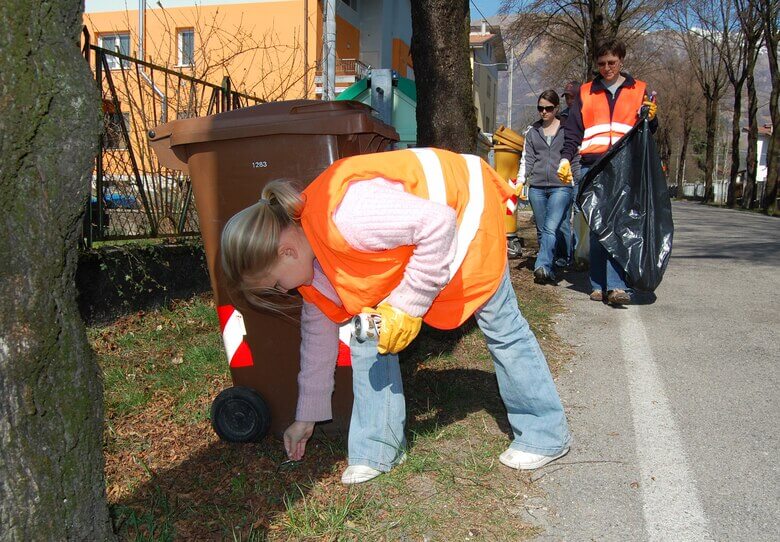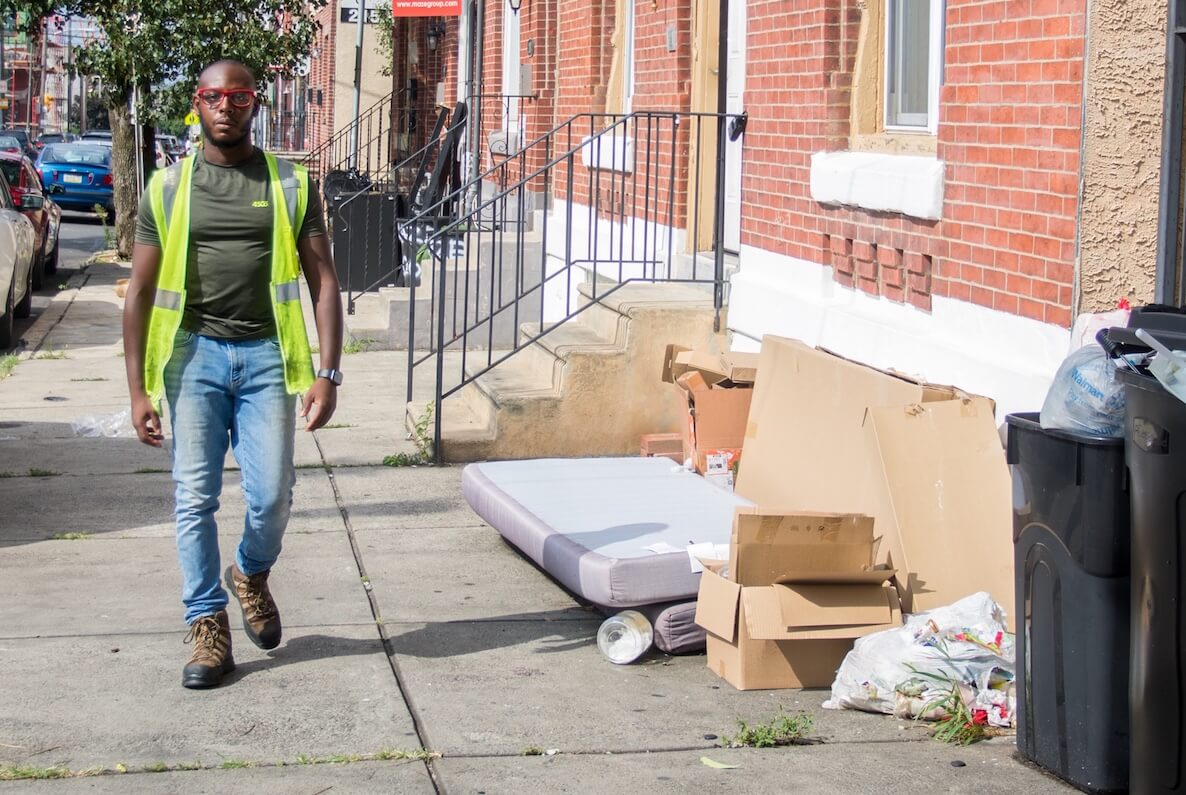As garbage piled up in the streets last summer, Philly sanitation worker Terrill Haigler was quick to respond to the frustrated cries for a cleaner city. He created an Instagram account—@YaFavTrashman—to document the day-in-the-life of a sanitation worker. The account took off, reaching over 23,000 followers on Instagram. Now, he wants to translate the success he’s had online to helping others clean up their own communities.
RELATED FROM THE CITIZEN
Last month, with the help of State Representative Jared Solomon, Haigler organized his first neighborhood street cleanup. Volunteers arrived at the corner of Levick Street and Cranford Avenue in the Northeast to pick up bottles, food wrappers, shopping bags and anything else they could find by Tarken Playground.
Since then, Haigler organized another cleanup in North Philadelphia on Martin Luther King Jr. Day and has plans for more in the near future. But he says Philadelphians don’t have to wait for him to organize a cleanup for them to take action in their community—they can coordinate one themselves. Here’s his advice on how to make that happen:
1. Mobilize the neighborhood.
“If one person really wants to do a cleanup, they have to have the support of the neighborhood because they can’t do it alone,” says Haigler. The more people who are able to attend a street cleanup, the faster and more efficient it will be, which is why advertising is key to a successful cleanup.

As an influencer, Haigler uses social media to recruit volunteers. He’ll post a flyer calling for volunteers on his Instagram grid about a week before the cleanup is scheduled. A couple of days before the cleanup, Haigler will make another post to remind his followers about the event. Whether a cleanup is organized by one person or a group, make sure the call for volunteers is where members of the community will most likely see it, like a Facebook neighborhood group, a civic association newsletter or the weekly bulletins at local houses of worship.
2. Bring the right materials.
 Besides volunteers, there are four things every cleanup needs: push brooms, shovels, trash pickers and trash bags. Organizers should provide some of these supplies but can reach out to local groups and civic associations to see what they can lend. If the cleanup is planned somewhere where there might be hazardous waste like disposable needles, puncture-resistant gloves, long pants and boots are also a necessity. Additionally, organizers should consider providing water and snacks for volunteers to have on their breaks.
Besides volunteers, there are four things every cleanup needs: push brooms, shovels, trash pickers and trash bags. Organizers should provide some of these supplies but can reach out to local groups and civic associations to see what they can lend. If the cleanup is planned somewhere where there might be hazardous waste like disposable needles, puncture-resistant gloves, long pants and boots are also a necessity. Additionally, organizers should consider providing water and snacks for volunteers to have on their breaks.
3. Have a detailed plan on where to clean.
When organizers know how many volunteers are going to attend, identify the blocks that will be cleaned, form groups and assign them to target certain areas, paths or roads. This will help streamline the pickup process and make the cleanup go by faster.
4. Figure out where the trash will go.

Two weeks before the cleanup is scheduled, Haigler suggests calling your local sanitation convenience center and asking if they can have a truck swing by the end of your event to pick up the garbage. If that’s not possible, organizers can drop off the trash directly to the nearest sanitation center, leave the trash at a designated corner to be picked up later or rent a dumpster. All items dropped off at sanitation centers must meet the residential trash and recycling requirements. Questions about accepted materials can be submitted to Philly 311.
5. Have fun.

Most importantly, Haigler says that cleanups should be fun and inclusive. Every cleanup is organized for the same reason: to see a neighborhood become a better place. Organizers should make sure they reach out to people who otherwise might not have seen the initial calls for volunteers, like a new neighbor or an old friend, to give them the opportunity to connect with the community. The cleanup should be a time when people organized around different groups in a neighborhood—culture, sports, religion, labor, history and politics—can come together and make meaningful change.
The Citizen is one of 20 news organizations producing Broke in Philly, a collaborative reporting project on solutions to poverty and the city’s push towards economic justice. Follow the project on Twitter @BrokeInPhilly.
Have an idea for a Citizen “How To” guide? Email info@thephiladelphiacitizen.com—we’d love to hear from you!
Terrill Haigler, aka @yafavtrashman

